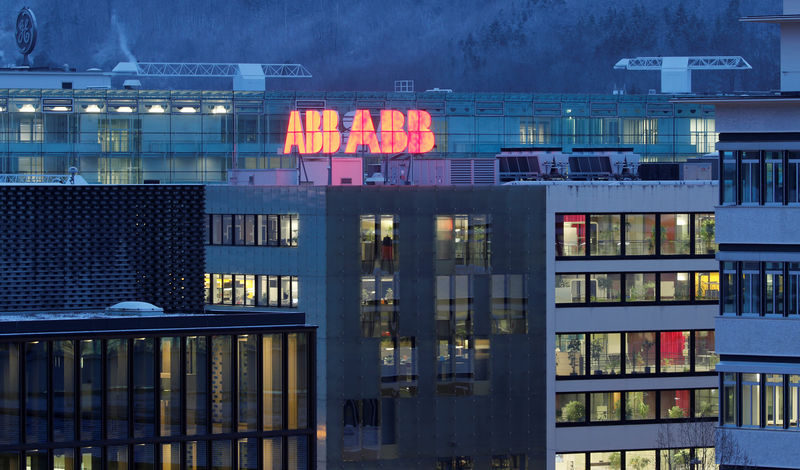By John Revill
ZURICH (Reuters) - ABB (S:ABBN) will pay up to $470 million (£377 million) to hand over its loss-making solar inverter business to Italy's FIMER SpA, the first big move by interim CEO Peter Voser and a reflection of the tough conditions in the solar industry.
Sales at the inverter business, which makes units that convert direct power from solar panels into alternating current that can be fed into the electricity grid, have plunged since the Swiss engineering company bought it in 2013.
Although solar power is the fastest growing source of electricity generation, equipment prices have plummeted in recent years in the face of Chinese competition and increased production.
ABB declined to say if it had attempted to sell the business before deciding to give it to FIMER but said it expected the operational EBITA margin at its electrification division to rise by more than 50 basis points after the divestment.
"The margin improvement in the future outweighs the cash impact of the transaction," said ABB spokesman Daniel Smith, who declined to comment on the business's profitability.
ABB will take an after-tax non-operational charge of approximately $430 million in the second quarter of 2019 to get rid of the business, with up to three quarters of the money being cash paid to FIMER.
An extra $40 million will come in separation costs with the deal due to be completed in the first quarter of 2020.
"The divestment is in line with our strategy of ongoing systematic portfolio management to strengthen competitiveness, focus on quality of revenue and higher growth segments," said Tarak Mehta, President of ABB's Electrification business, its largest unit since selling the power grids operation to Hitachi last year.
HIGH COST
Analysts viewed the exit positively but said ABB's foray into the solar industry had cost it dearly, while the price of off-loading the business would weigh on second quarter results.
"ABB's solar inverter strategy probably cost it close to $1.5 billion in terms of investments, acquisitions, exit costs and ongoing losses since 2013, trying to benefit from the growth in renewables but through commoditized products," said Andreas Willi at JP Morgan.
ABB's shares were around 2% lower by 1000 GMT.
Solar power has been boosted by governments and companies increasingly introducing clean energy targets but hardware costs have fallen more than 70% in the last decade.
An average-sized residential system in the U.S. has dropped from $40,000 in 2010 to roughly $18,000 today, according to the Solar Energy Industries Association.
Mehta said ABB will continue to integrate solar power into projects like smart buildings, energy storage and electric car charging.
ABB Chairman Voser, the former head of oil company Royal Dutch Shell (LON:RDSa), took over as the Swiss company's chief executive in April on an interim basis.
Analysts said the exit showed Voser was getting down to business and that the divestment could be followed by others as ABB looks to trim its operations and ditch under-performing units.

ABB bought the inverter business in 2013 for $620 million when it acquired U.S. solar energy company Power-One Inc, betting that growth in emerging markets would revive the sector. However, sales collapsed from $743 million in 2012 to $290 million in 2018.